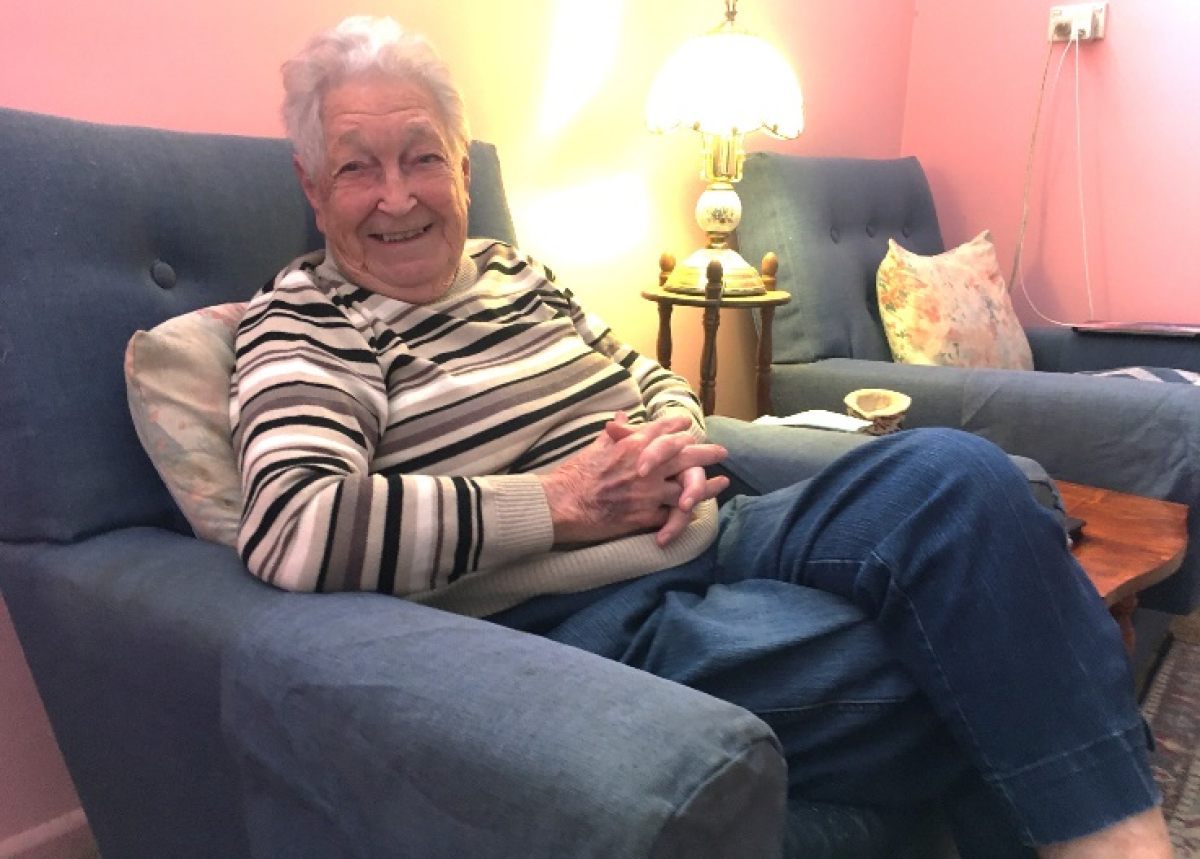Beryl Henshaw's story Part 1

I heard that Beryl was leaving Barraba soon, having lived here for over forty years. I knew she was English, having arrived in Australia with her parents as a child – one of the “ten pound pom” families, encouraged to migrate from England to Australia after WW2. What is her story?
Beryl was born in 1934 – her family lived in a village called Cleadon, in Northern England, near the city of Newcastle; she was the youngest in the family, with an older brother and sister. Her father was a draughtsman, employed locally. She was at school during the Second World War – she remembers having to always carry a gas mask, having air raid drills, and the air raid sirens going off. There was rationing, and food shortages, but her mother appeared to cope pretty well keeping the family fed and happy.
I asked Beryl why the family came to Australia – what triggered the momentous decision to up-sticks from what seemed a very stable situation in England, sailing half-way round the world in very trying conditions, to lots of unknowns?
But it wasn’t like that for Beryl’s family – her father’s family had already migrated to Australia in the 1930’s. His mother and father, brothers and sisters, were all established here. As Beryl said: “The only one who didn’t go was my Dad. He didn’t go as he was courting my Mum at the time; I think it was understood he would follow after they were married, but then the War intervened.” Beryl grew up with the expectation they would move to Australia one day.
They left in 1948 when Beryl was 13 years old – no jumbo jets then, getting you to Australia in a few days. Travel was by ocean liner, and those liners were not like the modern cruise ship we see advertised. Beryl describes the voyage: “We were in dormitories, female and male. Twelve bunk beds to a room, no cupboards, suitcase at the bottom of your bunk. Mum, my sister and I were in one dormitory with other women and girls, Dad and my brother in another dormitory with other males. We showered in saltwater in bathrooms across the corridor. And my poor Mum was seasick for all the six weeks!” Nevertheless, she enjoyed the adventure; no school, seeing many different places and visiting foreign ports.
Sailing in to dock at Sydney’s Woolloomooloo Beryl remembers a great sight; instead of grimy industrial wharfs, they were greeted by open green parkland. Because her father’s family was already established in Australia, housing was arranged. The family moved to a house in the Sydney suburb of Five Dock, where Beryl’s mother and father settled permanently. Her father went to work as a draughtman with Sydney City Council, where he stayed until retirement. Beryl enrolled at the local High School; she found those years “difficult”. She struggled with a very different curriculum, her English schooling being a long way behind in some subjects. Though she found the other students welcoming enough, she was very conscious of her different accent and background. In England, she was very aware of her northern English accent, but also aware of the different accent at her Birmingham School. In Australia, should she switch from the “school” accent to her “home” accent when she went from one place to another? Being bamboozled by Australian social conventions (such as “bring a plate” actually meant “bring food”, not an actual plate to supplement the host’s crockery supply!), Beryl and her mother tended to decline invitations rather than attend and be socially embarrassed.
